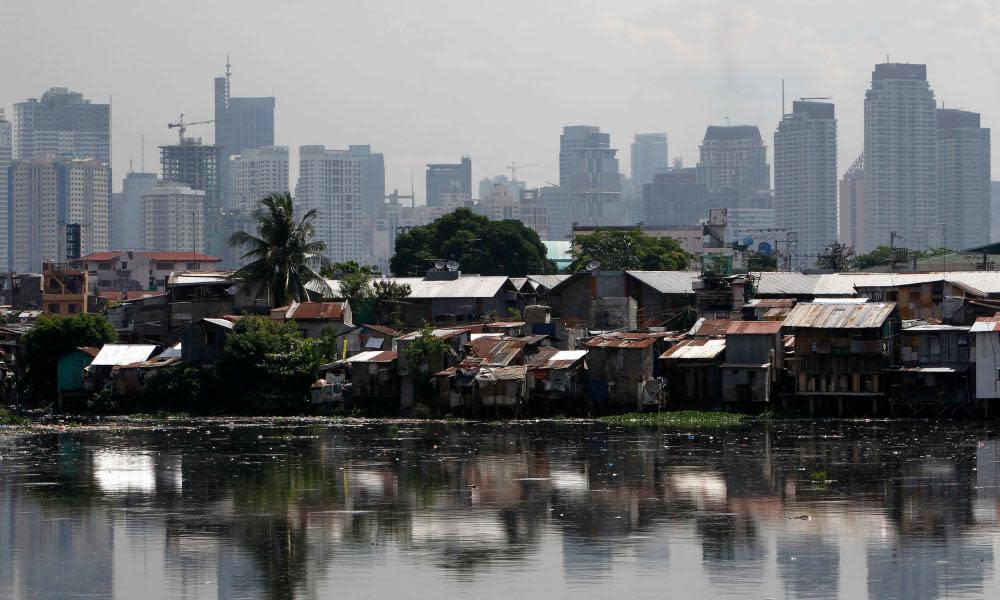Clean coal institute chairman accused of bribe conspiracy while at Sinclair Knight Merz

Police have accused the chairman of a government-funded clean coal and gas institute of conspiring to bribe public officials in the Philippines while chief executive of a major Australian aid contractor.
Paul Dougas, 67, the current chairman of the Global Carbon Capture and Storage Institute, has been named in connection with a long-running foreign bribery probe targeting his old firm, Sinclair Knight Merz, a large Australian consultancy and significant corporate player in the foreign aid program.
Dougas, who strongly denies the bribery allegation, was the 15-year chief executive and managing director of SKM, and had previously held other senior roles within the company.
Federal police have accused him of conspiring with SKM and other individuals to bribe Philippines government officials between 2000 and mid-2005.
Court documents seen by Guardian Australia allege the bribes were worth PHP6,543,578.94 ($A165,768.09) and went to “unknown” public officials in the Philippines government to help SKM secure contracts, including on sewage, river rehabilitation, and air quality projects in Manila.
Dougas left the firm in September 2011, following the end of his contract.
He was appointed chairman of the Global CCS Institute in January 2013. The institute was established by the Rudd government in 2009 to accelerate the take-up of carbon capture and storage technology for coal plants and gas projects through advocacy and research. It was expected to have received roughly $315m in taxpayer funds by 2017.
A statement issued by Dougas’ lawyers said he planned to fight the case against him, saying it was “foredoomed to fail”.
“Professor Dougas vehemently and strenuously denies the one and only 18-year-old claim made against him,” his law firm, Arnold Bloch Leibler, said in a statement. “Professor Dougas intends to clear his name. He expects to be vindicated.”
Dougas said the Global CCS Institute was aware of the charge against him. He said he intended to stay on as chairman until his current term ended.
“Professor Dougas has had the privilege of serving as chairman of the Global CCS Institute for the past five years and contributing to public debate in relation to climate change,” the statement read. “Professor Dougas currently intends to stay in the role until the end of the year by which time the institute board will appoint a new chair.”
The Global CCS Institute declined to comment on the matter.
“The Institute is aware of the matter but not in a position to comment further at present,” a spokesman said.
The government has some influence over the institute’s board appointments and has provided ongoing funding, though the level of taxpayer support has been gradually decreasing in recent years as the institute moves to a membership model. Its members now include Shell, BHP, and other major corporations, foreign governments, and non-government groups.
Dougas is charged with a single offence relating to the alleged bribery in the Philippines.
The case first appeared in a Sydney court last month and will appear again in October.
SKM has since been bought out by Californian consulting giant, Jacobs. That company has distanced itself from the allegations against SKM, saying they did not reflect the current business.
“The activities reported to authorities by SKM date as far back as 18 years ago, long before Jacobs acquired SKM in December 2013,” a Jacobs spokeswoman said. “In no way does that conduct reflect the ethical business standards and practices of Jacobs.”
Dougas is credited with growing SKM significantly during his time at the helm.
Fairfax Media reported the company was earning almost all of its money from work in Australia in 1996, when Dougas took control. By 2011, SKM was reportedly operating in 40 countries and had become the largest privately held engineering firm in Australia. About 30% of its income came from projects abroad.
• This reporting is supported by the Susan McKinnon Foundation through the Guardian Civic Journalism Trust

 Yahoo News
Yahoo News 
